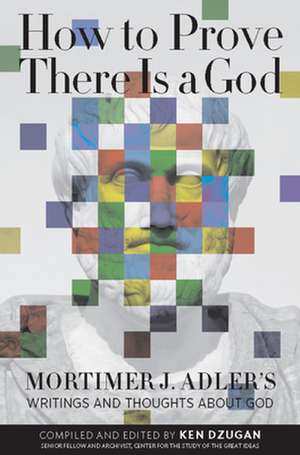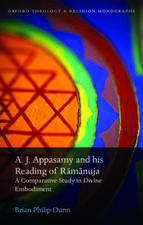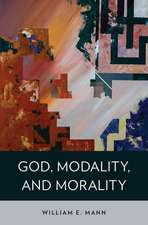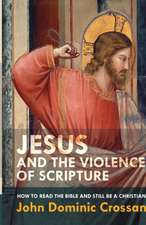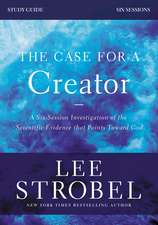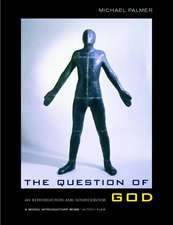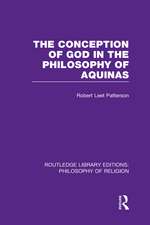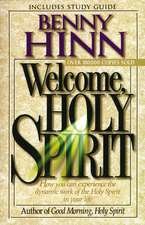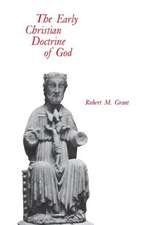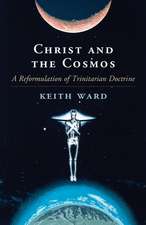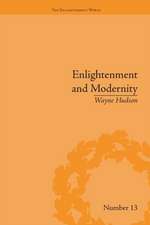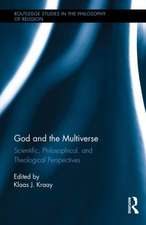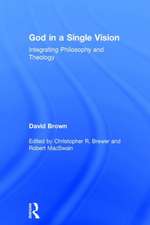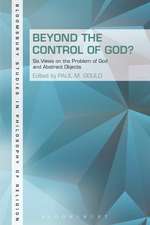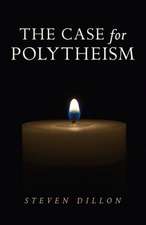How to Prove There Is a God: Mortimer J. Adler's Writings and Thoughts about God
Autor Mortimer Jerome Adler Editat de Ken Dzuganen Limba Engleză Paperback – 30 noi 2011
One of the great tasks of Mortimer Adler’s illustrious life was his search for a watertight proof of the existence of God. Adler believed that his search had been successful.
Adler spent years studying the classic proofs of God’s existence, especially Aquinas’s Five Ways, and found shortcomings in all of them, as conventionally understood. But he thought that some of them contained ideas which, if properly developed, could be improved, and he continued to search for a satisfying and logically unassailable proof. Toward the end of the 1970s, he believed he had arrived at such a proof, which he presented in his historic work, How to Think about God (1980).
In the writings assembled in How to Prove There Is a God, Adler gives us his approach to the question of God’s existence in fresh and popular form. He defends his position against critics, both believers and skeptics.
The book includes a transcript of one of Adler’s appearances on William Buckley’s Firing Line, Adler’s revealing interview with Edward Wakin, the exchange of views on natural theology between Adler and Owen Gingerich, and John Cramer’s eloquent argument that the trend of modern cosmology supports Adler’s early struggles with the question of God's existence.
Adler spent years studying the classic proofs of God’s existence, especially Aquinas’s Five Ways, and found shortcomings in all of them, as conventionally understood. But he thought that some of them contained ideas which, if properly developed, could be improved, and he continued to search for a satisfying and logically unassailable proof. Toward the end of the 1970s, he believed he had arrived at such a proof, which he presented in his historic work, How to Think about God (1980).
In the writings assembled in How to Prove There Is a God, Adler gives us his approach to the question of God’s existence in fresh and popular form. He defends his position against critics, both believers and skeptics.
The book includes a transcript of one of Adler’s appearances on William Buckley’s Firing Line, Adler’s revealing interview with Edward Wakin, the exchange of views on natural theology between Adler and Owen Gingerich, and John Cramer’s eloquent argument that the trend of modern cosmology supports Adler’s early struggles with the question of God's existence.
Preț: 162.71 lei
Nou
Puncte Express: 244
Preț estimativ în valută:
31.13€ • 32.51$ • 25.71£
31.13€ • 32.51$ • 25.71£
Carte disponibilă
Livrare economică 25 martie-08 aprilie
Preluare comenzi: 021 569.72.76
Specificații
ISBN-13: 9780812696899
ISBN-10: 0812696891
Pagini: 307
Dimensiuni: 152 x 226 x 23 mm
Greutate: 0.45 kg
Ediția:NONE
Editura: Open Court Publishing Company
ISBN-10: 0812696891
Pagini: 307
Dimensiuni: 152 x 226 x 23 mm
Greutate: 0.45 kg
Ediția:NONE
Editura: Open Court Publishing Company
Cuprins
Contents
Has Mortimer Adler Proved There Is a God? vii
I. Adler’s Case for God’s Existence
1. How to Think about God’s Existence MORTIMER J. ADLER 3
2. The God I Pray To MORTIMER J. ADLER 9
3. Adler Under Fire MORTIMER J. ADLER, WILLIAM F. BUCKLEY, AND JEFF GREENFIELD 15
II. A Debate about God and Science
4. The Guiding Hand of God in the Universe OWEN GINGERICH 47
5. God, Chance, and Natural Theology MORTIMER J. ADLER 65
6. Gingerich Replies to Adler OWEN GINGERICH 83
7. New Developments in Science Strengthen Adler’s Argument for God’s Existence JOHN CRAMER 87
III. Adler’s Early Struggles with the God Question
8. The Demonstration of God’s Existence (1943) MORTIMER J. ADLER 109
9. A Reply to Adler on God’s Existence (1943) HERBERT THOMAS SCHWARTZ 139
10. A New Approach to God’s Existence (1943) MORTIMER J. ADLER 163
Where These Chapters Came From 293
Acknowledgments and Permissions 297
Glossary of Terms and Phrases 299
Index 301
Recenzii
“America’s foremost philosopher.”
—TIME Magazine
“Mortimer Adler’s argument for the existence of God was a powerful reminder that the Aristotelian-Thomistic tradition was far from exhausted—now we can be grateful that Adler’s work is receiving the serious attention it deserves.”
—DEAL W. HUDSON, author of Onward Christian Soldiers: The Growing Political Power of Catholics and Evangelicals in the United States (2008)
“Why is there something rather than nothing? This collection of essays, interviews, criticisms, and reflections gives us a Mortimer Adler as public learner, trying to find the right question to ask about the existence of God, wrestling with it over decades, addressing the arguments of great theologians, philosophers, and scientists, refining his own answer to the question, and responding to his critics—all with the clarity of thought and simplicity of expression that characterize his writing for the general public.”
—CHRISTOPHER NELSON, President, St. John’s College Annapolis
“How to Prove There Is a God is vintage Mortimer Adler. A job beautifully done.”
—JACQUES BARZUN, author of From Dawn to Decadence (2000) and Simple and Direct (1985)
"America's foremost philosopher." --TIME Magazine"Mortimer Adler's argument for the existence of God was a powerful reminder that the Aristotelian-Thomistic tradition was far from exhausted--now we can be grateful that Adler's work is receiving the serious attention it deserves."--DEAL W. HUDSON, author of "Onward Christian Soldiers: The Growing Political Power of Catholics and Evangelicals in the United States" (2008)"Why is there something rather than nothing? This collection of essays, interviews, criticisms, and reflections gives us a Mortimer Adler as public learner, trying to find the right question to ask about the existence of God, wrestling with it over decades, addressing the arguments of great theologians, philosophers, and scientists, refining his own answer to the question, and responding to his critics--all with the clarity of thought and simplicity of expression that characterize his writing for the general public." --CHRISTOPHER NELSON, President, St. John's College Annapolis""How to Prove There Is a God" is vintage Mortimer Adler. A job beautifully done." --JACQUES BARZUN, author of "From Dawn to Decadence" (2000) and "Simple and Direct" (1985)
Notă biografică
MORTIMER J. ADLER, who died in 2001, left an indelible mark on American culture. Beginning in the 1930s, Adler was the major force in promoting the Great Books idea as an educational paradigm. He founded the Institute for Philosophical Research, launched the Paideia movement for educational reform, and revolutionized the Encyclopaedia Britannica. Dr. Adler edited hundreds of books and authored over sixty, ranging from original philosophical contributions to popular best-sellers like How to Read a Book.
KEN DZUGAN, a graduate of MIT, had enjoyed a varied career in business, city planning, and real estate development, when in 1990 he read Mortimer Adler’s How to Read a Book. “This experience transformed my life. It dramatically changed what I read, how I read, and why I read.” In his role as Archivist at the Center for the Study of The Great Ideas, Dzugan is working his way through over 200,000 pages of Dr. Adler’s papers, and has found over four hundred works never listed in any Adler bibliography, including one entire completed book.
KEN DZUGAN, a graduate of MIT, had enjoyed a varied career in business, city planning, and real estate development, when in 1990 he read Mortimer Adler’s How to Read a Book. “This experience transformed my life. It dramatically changed what I read, how I read, and why I read.” In his role as Archivist at the Center for the Study of The Great Ideas, Dzugan is working his way through over 200,000 pages of Dr. Adler’s papers, and has found over four hundred works never listed in any Adler bibliography, including one entire completed book.
